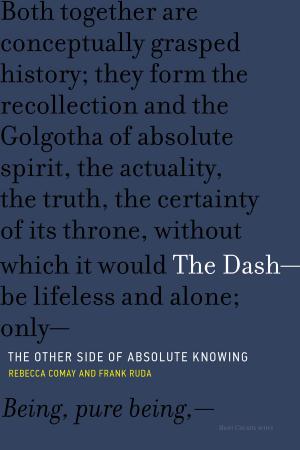Built upon Love
Architectural Longing after Ethics and Aesthetics
Nonfiction, Art & Architecture, Architecture| Author: | Alberto Pérez-Gómez | ISBN: | 9780262264228 |
| Publisher: | The MIT Press | Publication: | February 15, 2008 |
| Imprint: | The MIT Press | Language: | English |
| Author: | Alberto Pérez-Gómez |
| ISBN: | 9780262264228 |
| Publisher: | The MIT Press |
| Publication: | February 15, 2008 |
| Imprint: | The MIT Press |
| Language: | English |
A vision of architecture that transcends concerns of form and function and finds the connections between the architect's wish to design a beautiful world and architecture's imperative to provide a better place for society.
The forced polarity between form and function in considerations of architecture—opposing art to social interests, ethics to poetic expression—obscures the deep connections between ethical and poetical values in architectural tradition. Architecture has been, and must continue to be, writes Alberto Pérez-Gómez, built upon love. Modernity has rightly rejected past architectural excesses, but, Pérez-Gómez argues, the materialistic and technological alternatives it proposes do not answer satisfactorily the complex desire that defines humanity. True architecture is concerned with far more than fashionable form, affordable homes, and sustainable development; it responds to a desire for an eloquent place to dwell—one that lovingly provides a sense of order resonant with our dreams. In Built upon Love Pérez-Gómez uncovers the relationship between love and architecture in order to find the points of contact between poetics and ethics—between the architect's wish to design a beautiful world and architecture's imperative to provide a better place for society.
Eros, as first imagined by the early lyric poets of classical Greece, is the invisible force at the root of our capacity to create and comprehend the poetic image. Pérez-Gómez examines the nature of architectural form in the light of eros, seduction, and the tradition of the poetic image in Western architecture. He charts the ethical dimension of architecture, tracing the connections between philia—the love of friends that entails mutual responsibility among equals—and architectural program. He explores the position of architecture at the limits of language and discusses the analogical language of philia in modernist architectural theory. Finally, he uncovers connections between ethics and poetics, describing a contemporary practice of architecture under the sign of love, incorporating both eros and philia.
A vision of architecture that transcends concerns of form and function and finds the connections between the architect's wish to design a beautiful world and architecture's imperative to provide a better place for society.
The forced polarity between form and function in considerations of architecture—opposing art to social interests, ethics to poetic expression—obscures the deep connections between ethical and poetical values in architectural tradition. Architecture has been, and must continue to be, writes Alberto Pérez-Gómez, built upon love. Modernity has rightly rejected past architectural excesses, but, Pérez-Gómez argues, the materialistic and technological alternatives it proposes do not answer satisfactorily the complex desire that defines humanity. True architecture is concerned with far more than fashionable form, affordable homes, and sustainable development; it responds to a desire for an eloquent place to dwell—one that lovingly provides a sense of order resonant with our dreams. In Built upon Love Pérez-Gómez uncovers the relationship between love and architecture in order to find the points of contact between poetics and ethics—between the architect's wish to design a beautiful world and architecture's imperative to provide a better place for society.
Eros, as first imagined by the early lyric poets of classical Greece, is the invisible force at the root of our capacity to create and comprehend the poetic image. Pérez-Gómez examines the nature of architectural form in the light of eros, seduction, and the tradition of the poetic image in Western architecture. He charts the ethical dimension of architecture, tracing the connections between philia—the love of friends that entails mutual responsibility among equals—and architectural program. He explores the position of architecture at the limits of language and discusses the analogical language of philia in modernist architectural theory. Finally, he uncovers connections between ethics and poetics, describing a contemporary practice of architecture under the sign of love, incorporating both eros and philia.















